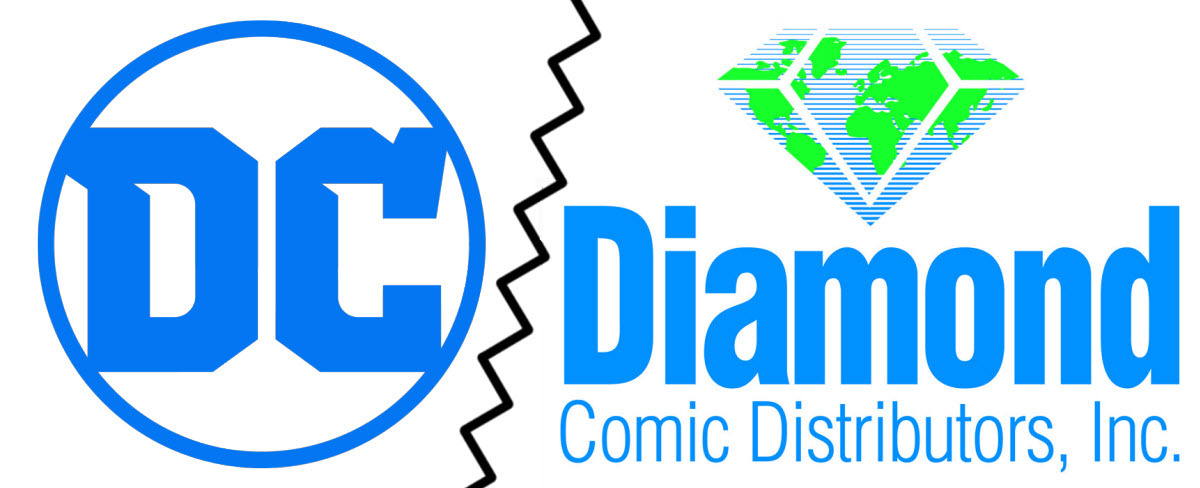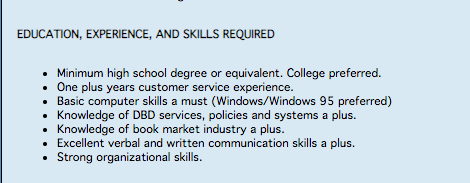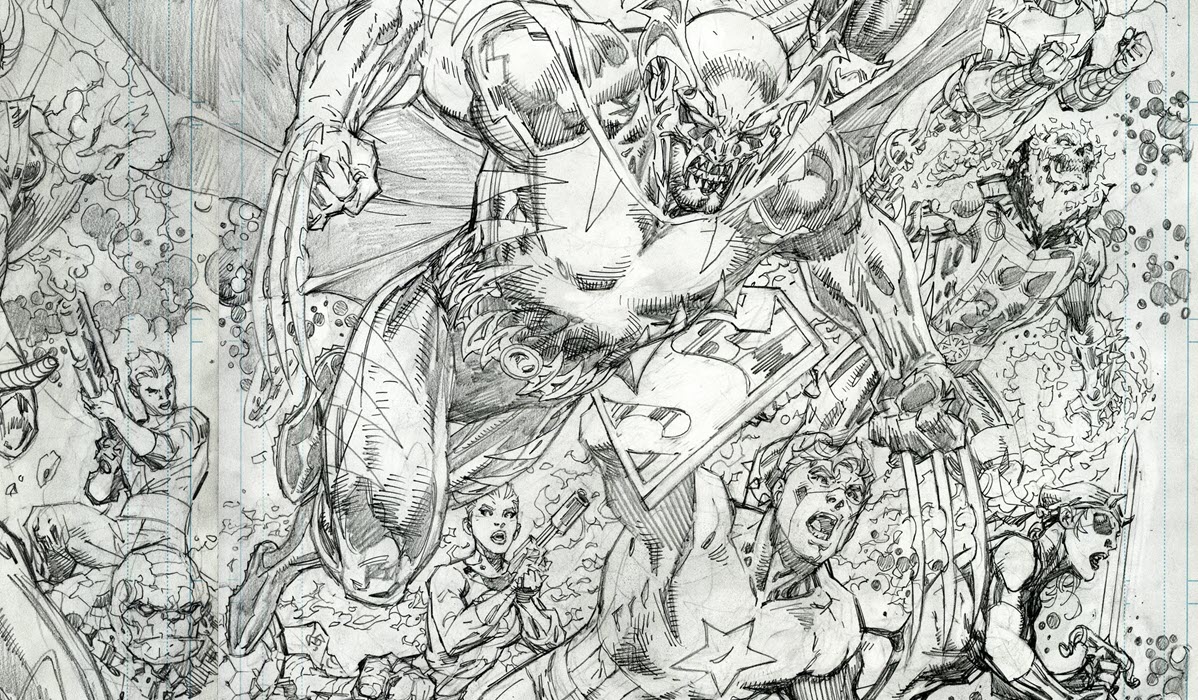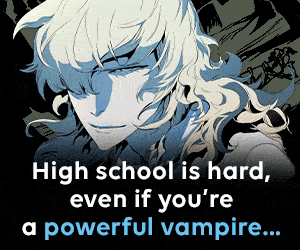While the world reels from medical, economic and social turmoil, comics is having its own very special crisis: DC announcing they will no longer distribute periodicals via Diamond. We’ve all had a few days to ruminate and the shirt rending and hair tearing has subsided, so here are some thoughts based on public and private conversations. This is a layperson’s guide, though, and doesn’t drill down on shipping, FOCs and the actual nitty gritty that real retailers have to deal with. Although this is the practical basis of what will make this work or not, first looking at the people part of the equation will give us many clues to whether it can.
Two astute comics observers have written fairly comprehensive guides to the crisis, Rob Salkowitz for ICv2 and David Harper for SKTCHD. Let’s go to the blockquotes!
Salkowitz weighs the hopes (Diamond needed a kick in the ass) and the fears (this will shut down many stores) with a bit more leaning to the latter.
The timing is beyond awful. We’re coming off 10 weeks of depressed retail activity where some stores are down 80-90% due to local business restrictions and lack of new product. A disproportionate amount of that impact is felt by stores in big urban centers, which drive the highest volume. And while income has dried up, costs like rent haven’t. Most stores are scraping by with call-in orders, pickup and delivery, which is killing their cost-per-sale, and most have furloughed employees or let them go outright. Even if DC’s move only adds 10% to cost and time overhead (yes, stop laughing now…), no one has an extra 10% of anything lying around right now. But if you want DC books on the shelves for customers, that’s what it will take.
For owners who have already been through the ringer, DC’s move – which may have even been welcome at other times – could be the last straw. Even the ones who hate Diamond with the passion of a thousand suns and fully trust that Lunar and UCS will treat them fairly would rather muddle through the next six months with the devil they know than have to deal with some fresh new hell on top of the stale old hell that’s already consumed their business.
Well, yup. How much more can shops take? I mean I assume murder hornets and new COVID-19 outbreaks are going to make all our lives more living hell for the foreseeable future anyway.
Harper talks to a lot of retailers and has a more optimistic, or perhaps we should say, realistic, outlook.
I heard from several other retailers beyond this core group, and it’s worth noting again that while the most vocal shops were ready to tar and feather DC, even the most upset ones I chatted with effectively admitted this was a solvable problem. In terms of obvious cons of the idea from the retailer side of the world, the biggest ones noted were the following: shops that were previously closed on Monday or Tuesday can no longer be closed because it’s an inventory or new comic book day depending on the day they traditionally have off, meaning more staffing or time the owner themselves put in, how UCS and Lunar will not work properly (at least at first) with pull management systems like Diamond’s PullBox or more complicated systems like ComicHub, uncertainty with international shops, and how they’ll now have to order and ship from yet another distributor, costing them additional time and money. All are legitimate complaints – and we’ll get to international here in a second – but I wanted to focus on the last idea for a second.
It appears that the discounts from Lunar and UCS are effectively the same as they were at Diamond (APPEARS) — the big problem is higher shipping costs (and also the work to fill out new paperwork, of course).
The margins on product aren’t worse, it’s just shipping through Lunar and UCS is slightly more expensive. So the actual discounts and rates via the new distributors level out, as it currently stands, but the cost of shipping eats up margins to a degree. As Higgins noted, though, Lunar is actively working to find ways to reduce those costs. I imagine UCS is doing the same. Given that they’re only a month and a half into this, I’d wager they get there. Beyond that, it has to be mentioned here that unlike the famously, occasionally haphazard packaging Diamond does, Lunar and UCS have earned applause for how, dare I say it, professional the packaging looks. It costs more, for now, but it also comes with better results. King has seen other pluses from this experience, as well.
Will higher shipping costs destroy the market? Nothing is off the table in these extraordinary times, yet I find that idea that stores could survive a pandemic and lockdowns but be killed by an extra $20 a week in shipping unlikely. As a psychological last straw, maybe.
As for ordering, UCS at least has announced that they are becoming compatible with ComicsSuite and ComicHub, the two most popular POS ordering systems. One assumes Lunar will follow suit. This, at least, will make ordering a bit less of a chore.
A larger, more nebulous but also most credible fear is that Lunar (DCBS) and UCS (Midtown) just won’t be able to stand the work and volume of shipping thousands of comics to thousands of stores and will sink the market through bumbling, Heroes World-style. As noted by others, for however long this was in the works, Lunar and UCS needed to staff up and put new systems into place. And distributing periodical comics is no walk in the park — many a company has looked into it and then walked away in horror, including Penguin Random House. Still, reports that Lunar/UCS aren’t answering the phone or responding to requests for help aren’t exactly encouraging.
An even bigger fear is that losing 30% of their business will swamp Diamond itself. And as history tells us, a distributor going under is the most disastrous thing that can happen to any industry. Diamond folding would be the single most horrific thing that could happen to the existing comics industry. But as Diamond owner Steve Geppi tells us, they are in it for the long haul. How much faith you put in that optimism is how much faith you have in the entire construct of the DM.
But that brings us back to the big why of it all: Why so suddenly and why now? The now seems to be a “rip off the Band-Aid” approach: everything was hell already with a new normal on its way, so just throw another log on the bonfire.
Nonetheless, the breakdown in negotiations between Diamond and DC will be a much discussed event for some time to come. And while we can only speculate (for now), Geppi himself is the primary witness at present. In a five-part interview with ICv2 conducted early in May, interrogated by former rival Milton Griepp, Geppi talked about many things. Most were also covered in the two video chats he did, but on video, Geppi’s folksy charm carries the day; transcribed, it’s a bit more circular. You can read the whole thing here: Part 1, Part 2, Part 3, Part 4, Part 5. Part 1 has more details about Diamond’s financial situation — bottom line, their cash flow isn’t great either, and they had to furlough 507 employees, which may explain why, as shipping has ramped up, we’re hearing about so many incomplete orders.
In part 2, however, Geppi talks about dealing with DC. Knowing what we do now, you can do some triangulation:
When Jim [Lee} called me, he said, “Steve, this is not going to be a good call for Diamond.” We knew from our last contract that they had built into the contract a 60‑day out clause, so they had the right to break this exclusive on 60 days notice. In fact, it was admitted to us in a private conversation with the CFO that they had been contemplating breaking this exclusive for a period of time for reasons that they now give of wanting to have a multi‑distributor platform. Not having anticipated the virus, but I guess just in general, it seems to be in Time Warner (and I don’t know what it is at AT&T) a taboo to have all your eggs in one basket, so they were looking at that. It took us almost three years to get that contract done with them. In hindsight, I’m thinking that might have been the reason. They were shopping, trying to figure it out, but eventually figured they couldn’t do it. They signed a contract that had a 60‑day out clause with the idea that, if they figured it out, then they had that 60‑day out clause. Along comes the virus, and it becomes, in their mind, a huge to‑do.
…
But DC would put out a press release. I’ll tell you this up front: the day before you saw the press release announcing two new distributors under the auspices of Lunar and UCS, they would not tell us the night before who it was, for whatever reason, which we were a little offended by, but that’s their prerogative. The next day, within three seconds, everybody knew it was Midtown, and everybody knew it was DCBS. For their reasons that only they know, they wanted to tell the world simultaneously. We were handicapped on that.
In part 3, there’s a rather interesting take on DC’s relationship with Penguin Random House:
Right now, I’m of the opinion that Penguin Random House definitely shipped graphic novels that we hadn’t shipped yet, but remember, they’re not supposed to sell in our market. Quite frankly, one of the things I’m campaigning for in our next contract is, if you’re going to take our exclusive, God bless you, it’s your prerogative, and if you’re doing it under the auspices of, “Nobody at Time Warner likes exclusives. They don’t want their eggs in one basket,” then it’s only fair that if you’re going to allow Penguin Random House (particularly, but anybody else) to sell to our market, because we’re no longer exclusive, we should be able to sell in their market. Quite frankly, what was happening, we were selling frontlist graphic novels to the comic stores who were then reordering from Penguin Random House into our exclusive which is not supposedly permitted. Penguin Random House would take reorders from Brian Hibbs, sell them at a lesser discount, but he determined it was cheaper with the freight. For example, they shipped 45 percent freight paid to Brian Hibbs. Diamond is 50 percent, but he says it’s six percent freight so he saved a point. It’s not fair now to open that can of worms, particularly with us having equal shipment time, no six days of lag. Why? Maybe a retailer would say, “Screw Diamond. I’m going to buy my graphic novels, both the frontlist and the reorders, from Random House, because now it’s OK.” That’s a little bit of a question in the negotiation now.
Could this have been one of the questions that Diamond needed answered that DC declined to?
Comics retailers have been switching to book distributors for graphic novels for some time now, in increasing numbers. It’s one of the reasons that Diamond’s GN sales have been getting softer over the last few years: Similar numbers of graphic novels were being sold but not as many were going through Diamond.
Diamond’s reordering system is more expensive than other options. As Brian Hibbs himself pointed out:
Diamond’s structure of how they make money is also a real problem — see, they never made money “just” from the distribution of goods, but also from many policy-level “hidden” charges. For an example: Diamond has a 3 percent “reorder penalty” for, well, reorders. This sort of makes sense when you look back 30+ years when periodicals solely ruled the world. This policy encourages retailers to place periodical orders up front (when you’re going to sell the most product anyway), but when you start applying it to perpetual stock items like books where I’ve sold 300+ times the number of copies of Watchmen over the years than my “initial order,” it begins to make a lot less sense.
As for DC’s side of things, Geppi’s statement that AT&T doesn’t like all its eggs in one basket might very well be accurate, but let’s go back to former DC president Diane Nelson’s Exhibit A:
I can say purely as a private individual that Diamond has, for a long time, been unwilling or unable to modernize and support and grow the biz as needed for a healthy direct channel. And may not even be solvent.
That’s a pretty harsh statement but as I read it, a gaffe from a few years back kept circulating in my mind: a job listing at Diamond that called for knowledge of the Win95 operating system:
I don’t remember when this job was posted, but Twitter has the answer as always:
If anyone wants to know how behind the times Diamond is they are asking for Windows 95 experience for a Customer Service Rep.
Windows 95 support was ended 17 years ago… pic.twitter.com/SPJVu19uog
— Xavier Files (@XavierFiles) February 4, 2018
I confirmed that this was actually true: in 2018 Diamond was using 20+-year-old software. Setting aside the fact that some current software to do anything wouldn’t even run on such a dinosaur, the security vulnerabilities are insane. I’m told that Diamond does use a more modern OS these days, so thank the Lord for small things. But if you’re wondering where the “unwilling or unable to modernize” thing comes from, that’s a good example.
Geppi’s mention of three years of negotiations does confirm that DC’s desire to use other distributors goes back way before COVID-19, and was something that DiDio and Nelson were considering. Given all this, the timing of DiDio’s departure is even more ironic, in at least one of the Alanis Morissette senses of the word.
Perhaps the biggest, most concrete problem with the new system is that retailers in Canada and the UK are being shut out because of shipping costs — losing 10-15% of your business is definitely bad. The shipping costs outside of the US are very, very high as presented. Diamond got around this by drop shipping to sub-distributors, but Lunar and UCS have yet to set up such systems. I’m told that DC had a UK distributor set up but it didn’t work out at the last moment.
Several options are being explored for Canada. One of the most intriguing, as I’ve heard from several people, is that Universal Distribution, a Canadian games distributor, can sell comics periodicals. One thing that has emerged in all this COVID-19 turmoil is that games distributors can sell comic books, even Diamond-exclusive comics. I have no idea what the technical loophole for this is, and the idea hasn’t really taken off, but it’s there.
These foreign shipping issues can be solved — and people are trying to solve them. However, that brings us to the other elephant in the room: necessary Band-Aid ripping or no, DC’s rollout of this new system from a communications standpoint has been awful. Whatever corporate level at AT&T/Warner/DC is declaring a public lockdown on commenting about this is very effective. I’m told that inside DC, the primary decision makers on this after Publisher Jim Lee are SVP Publishing Strategy & Support Services Hank Kanalz and Vice President, Sales Nancy Spears. Industry circulation veteran Jim Sokolowski is also at DC, although he was moved to a different position in last year’s reorg. However, as one of the last “old school circ” guys around, I’m sure he has many thoughts about all of this — and it’s unlikely he’s shy about expressing them.
In an industry based on community (yes, really) and long relationships, DC’s modern corporate stance on not discussing arcane business practices in public is typical…but far from reassuring.
Still, it’s safe to say that no one — not even DC’s corporate boss Pam Lifford — wants to see shops, publishers or distributors close or shut down. Periodicals made money for DC, and the goal is to continue to make money and make more. However, the pandemic laid bare all the stress points of the system that people had been grumbling or worrying about for years. Maybe a slower evolution would have allowed these issues to be solved in a more gradual way. Or maybe they would have just been put off until some other disaster. That isn’t what happened. Whether we like it or not, we’re getting a new normal.
There’s a lot more to report on all of this but I’ll leave with a personal aside.
While I’ve approached all the outrage and very real anger from comics retailers with a light touch (I’ve heard it all many times in all my time in the industry) in the end I’m very sympathetic to their plight, although I guess they don’t believe me — perhaps because I haven’t been expressing it very well. I detest change myself, and this is a lot of change, on top of the greatest worldwide crisis in the post-World War II era. After reading the doomsaying from retailers, I posted this somewhat wiseass poll on Twitter:
So what is dead?
— Heidi MacDonald (@Comixace) June 6, 2020
I guess I should have been clearer that I was being a wiseass, because many retailers responded to this tweet angrily, and for that, I apologize. I wasn’t trying to add fuel to the fire, but after three months of minimal human contact, my communication skills are eroding, as this very post can attest.
A lot of the highly emotional rhetoric we’ve seen is just human nature. People don’t want to switch distributors (no matter how much they complained about Diamond in the past) because most humans are change resistant. People liked the comfy cozy world of comics as it was. I include myself in that. I’m sad to think that I’ll no longer be seeing the DC crew at Diamond retailing summits — when and if there are summits again. The typical monthly comics sales charts are going bye bye, and many other rituals and customs are now a thing of the past. I’ll miss those things. But for now it is best not to dwell on the past — not when we have so much of the future to plan.













DC made this announcement on purpose on a Friday afternoon to retailers and of course not one of these management people had the guts to respond to retailers whatsoever. I call BS on Pam Lifford, Jim Lee or anyone in DC’s current management and it’s ownership structure caring about retailers because there radio silence speaks volumes to me as a retailer. You want to change distributors that’s fine, how about rolling this out with the proper infrastructure and supply chains in place before you do this. That would have been a lot smarter and would give retailers more confidence in these 2 new so called distributors.
The biggest issue I have is shipping costs which will be a lot of higher with who both these new players.
I have to do more work as a retailer so be it, I will do what I have to do to get DC product to my customers.
I understand retailers anxiety, especially with the timing involved. From DC’s perspective though it just doesn’t make sense to have the same distributor as Marvel. Together they make up 80-90% of the market and DC is almost always second fiddle. How are you going to change that without making your own independent decisions? As for timing, this is probably related to DiDio’s departure. Corporate DC decided they wanted a break from Marvel’s distributor and DiDio stood up for the retailer. In the end, corporate DC decided it was time for independence.
I think foreign accounts should get in touch with an international freight shipping company, to get their orders collected from both Diamond and UCS/Lunar. The shipping company can ship the product together with anything else they need to ship to any particular destination, thus partly reducing the (I assume) greatest part of the additional freight. You pay Diamond for shipping to the shipping company, and you pay the shipping company for shipping to your address.
I live a three hour trip from a comic shop. If I wasn’t an old man who’s been reading comic books for 60 years I wouldn’t even know what one looks like. I get my fix via a box in the mail. But others – how would they know what an old fashion comic book looked like? Scholastic doesn’t sell tiny mags to kids. Every year, the number of comics sold (to be read) goes down, as does the number of comic shops. I’m not sure what can be done to grow readers- but what we were doing doesn’t work.
Very very well written article, Ace!
Per Lunar at least: “If you want us to distribute to you, you need to give us your customer addresses, so we can make sure they get what they order if we can’t allocate enough titles to you [because we are directly stealing your business]”.
so, as a small business retailer here in europe and got smashed in the face with a hammer. i have no idea how to get dc prducts by now… its not possible to contact DC comics, there is now answer from midtown… so, what now????
Lunar (new West Coast Monopoly, though having an option had been the best thing about this change…)
Shipping too high, check, antiquated website, check, lack of immediate communication (messages take 2 days or more for response), check, disarray for ordering and processing flow, check. They’ve certainly got a lot going for them. :-/
I was told that ~”If you don’t order enough DC titles, yes the shipping will be problematic. If you start ordering more it should be negligible.” by a Lunar rep a couple days ago.
Ok… so order more product. Why didn’t I think of that?
Bottom line, as you stated, almost any other time, having a -second- option for distribution would have been welcome. But when you couple it with how badly DC bungled things for retailers before announcing they had flat out lied to us for weeks about having the -option- to move to Lunar, when in fact, I can’t imagine they didn’t assume they were going to drop Diamond in the short term, before the famed Diamond inquiries caused the abrupt contract termination.
I have now had to place Feb-Mar product orders for DC 3 times, and I am still not assured to have product, as we are now late to the game with likely thousands of retailers having to rush to place their FOCs with Lunar for product we already had on order… twice… with Diamond.
I will frankly not be buying any shelf copies of DC books for the foreseeable future. Fortunately, I have a robust presolicitation system, which I’ve used for years… which requires customers to actually be coming into the shop… oh yeah, and lets not forget DC passing the printing costs for their catalog which we hawk for them… 50% plus of my customers aren’t interested in getting their physical comic advertisement from a digital PDF…
The hardest part for me as someone who has had to swallow this painful pill is having to be angry with Jim Lee… One of a handful of creators that got me into comics in the first place almost 40 years ago now… I feel betrayed, personally and professionally by a company that I actually used to consider the leader in public relations and humanity in the industry. C’est La Vie! =:xB
Comments are closed.